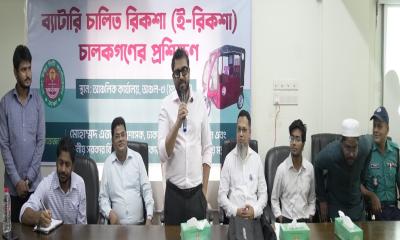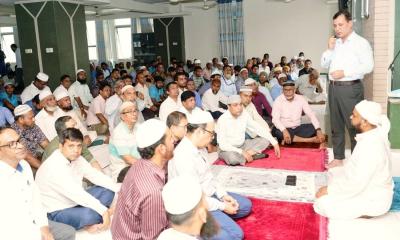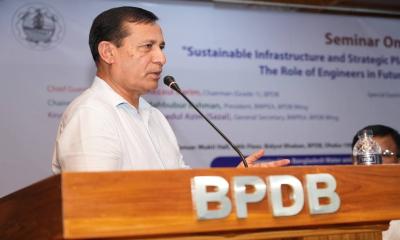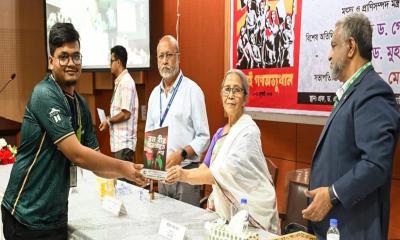Providing licenses and training to rickshaw drivers will create a legal basis for state recognition of rickshaw drivers, said Dhaka North City Corporation (DNCC) Administrator Mohammad Azaz.
The administrator said these things after inspecting the DNCC e-rickshaw driver training program in Mohakhali this morning.
At the same time, the administrator also said to the trainees, "The two city corporations of Dhaka are simultaneously providing training to e-rickshaw drivers to bring discipline to the movement of battery-powered rickshaws in Dhaka. Through training, we want to bring e-rickshaw drivers under a legal framework."
The training program for e-rickshaw drivers has started in the Dhaka North City Corporation (DNCC) area from today at the initiative of DNCC and the Local Government Department. The training was held simultaneously at five venues in the capital on the first day.
Training activities are being conducted at two venues each in the DNCC zonal office in Mohakhali, one in the Mohammadpur Shuchon Community Center, Mirpur 10 and Uttara.
About 600 e-rickshaw drivers participated in the training on the first day. Of these, 237 drivers are undergoing training in Mohakhali itself. Regular training will continue at these venues from tomorrow.
After the one-day training, the drivers will be issued a five-year digital driving license.
While visiting the Mohakhali venue in the morning, DNCC Administrator Mohammad Ejaz told the trainee drivers, “This training will reduce accidents and encourage drivers to obey the law.”
He also said, “The dangerous battery-powered rickshaws currently operating in the city will be phased out step by step and rickshaws designed by BUET will be introduced.”
The training is being given to e-rickshaw drivers about traffic laws, road safety, causes of accidents, signs and signals, rickshaw driving techniques and the process of getting a driving license. The Traffic Department of Dhaka Metropolitan Police is also cooperating in this session.
The administrator said that two lakh rickshaw drivers will be included in the training in phases. He said, “Later, different colored rickshaws will be approved for each region. Then, rickshaws from one region will not be allowed to be operated in another region.”
According to the design of the Mechanical Engineering Department of BUET, the maximum speed of battery-powered e-rickshaws has been set at 30 kilometers per hour. However, this speed limit will be 15 to 20 kilometers per hour in certain areas. According to the ‘Electric Three Wheeler Management Policy 2025 (Draft)’ formulated by the Local Government Department, these rickshaws can be operated only in neighborhoods and alleyways, not on main roads.
It is worth noting that earlier on June 28, Local Government Advisor Asif Mahmud Sajeeb Bhuiyan inaugurated the Training of Trainers (ToT) program for rickshaw pullers.
Through this training program, DNCC is moving towards implementing a long-term plan, which will bring discipline to the urban transport system and ensure the safe movement of citizens.






